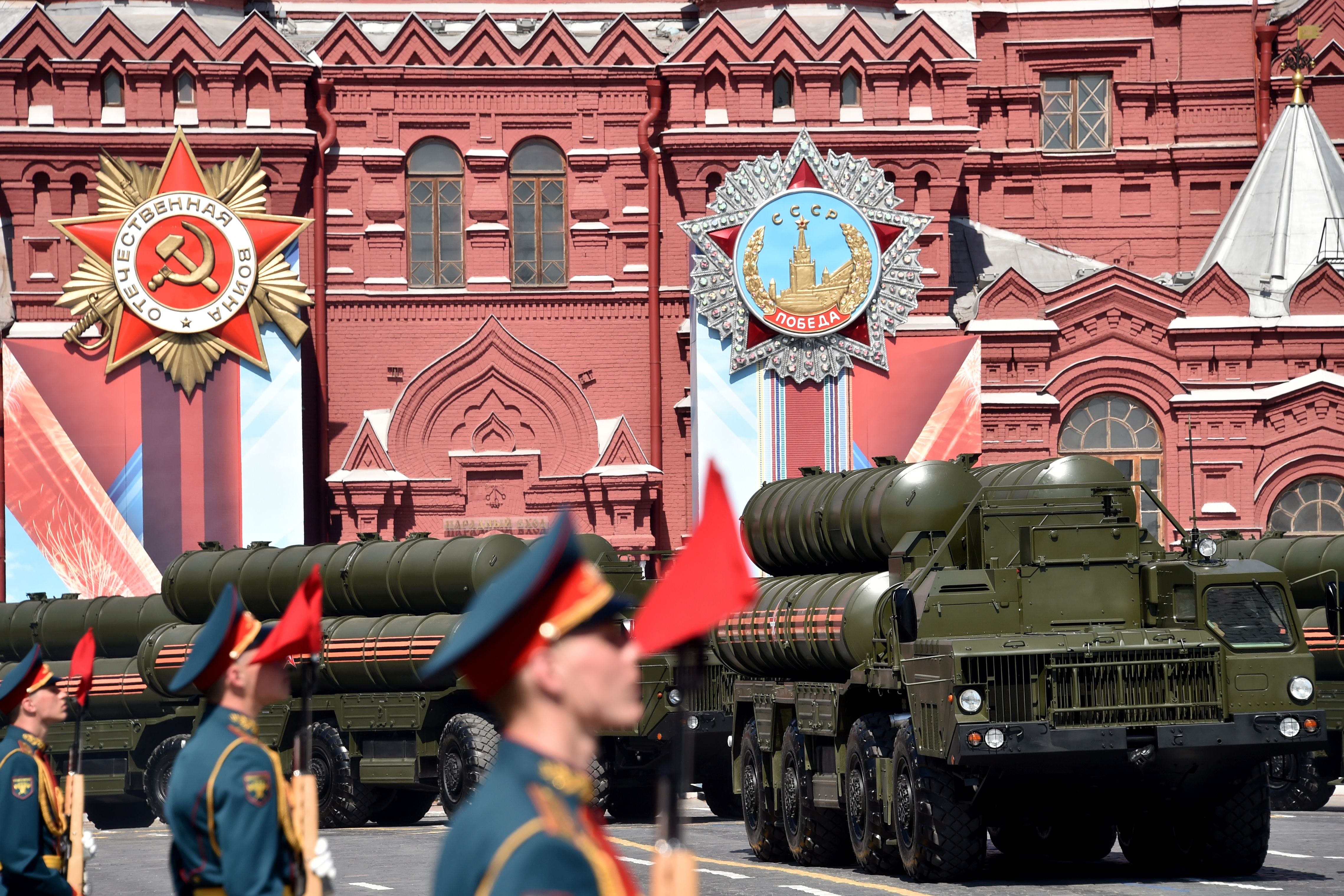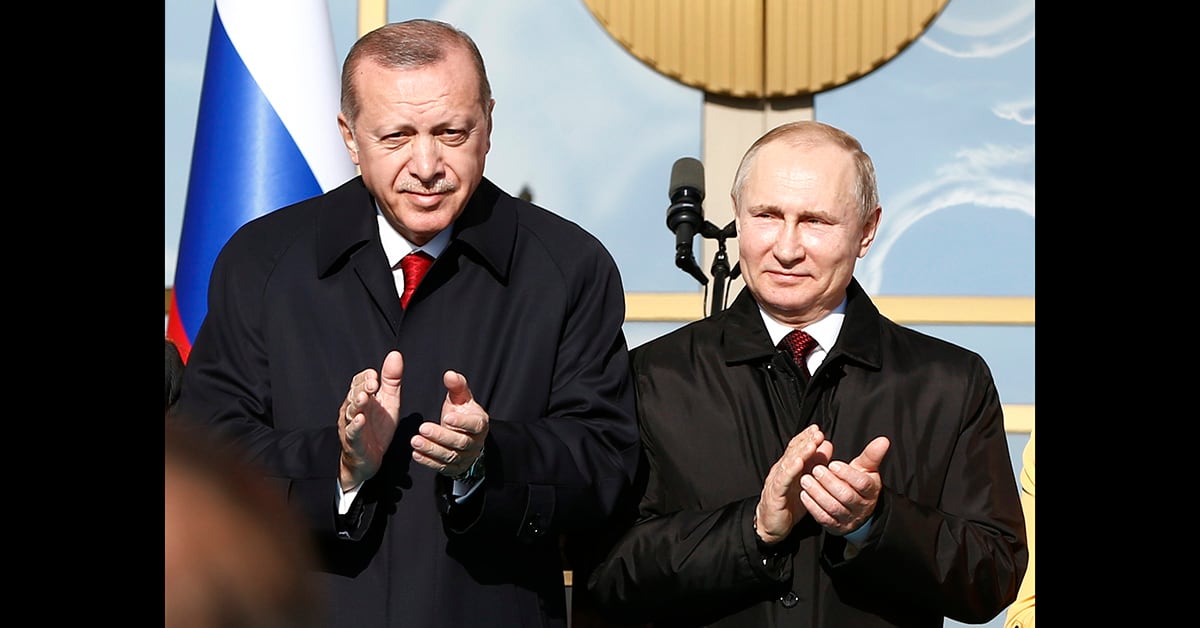WASHINGTON — Standing on a 360-degree stage, surrounded by NATO members and supporters on the alliance’s 70th birthday, less than two hours before the secretary general is scheduled to make an appearance before a rare joint session of the U.S. Congress, Turkey’s foreign minister planted his flag.
“Turkey doesn’t have to choose between Russia and any others, and we don’t see our relationship with Russia as an alternative to others,” Mevlüt Çavuşoğlu, Minister of Foreign Affairs for Turkey, said at the NATO Engages event. “Nobody, neither West nor Russia, should ask us to choose."
Throughout the 30-minute appearance, Çavuşoğlu underlined Turkey’s view that his nation must engage with Russia as well as the West, in order to maximize both political and business potential for Ankara. But he was most direct when discussing the plan to buy Russia’s S-400 system, which has become an internal flashpoint for the alliance, saying it is “definitely” going to happen.
“It’s a done deal,” Çavuşoğlu said. “This is a done deal.”
RELATED

Çavuşoğlu also claimed that U.S. President Donald Trump has opened the door to keeping F-35 sales to Turkey going, despite a Pentagon statement this week that the Department of Defense was cutting off delivery of parts for the plane, needed in advance of Turkey taking the jets into service this summer, due to the S-400 issue.
Top U.S. and alliance officials have said the S-400 cannot be allowed to tie into any NATO systems, but the F-35 in particular, given its importance to a number of allied nations for at least the next thirty years.
Çavuşoğlu sidestepped repeated questions about what impact losing the industrial participation of the F-35 program could have on Turkey’s economy, saying “we are a part of this program. It should be that simple.”
But notably, he expressed a belief that the F-35 sales will eventually turn back on, noting “different statements are coming from different institutions of the United States as well… different and contradictory statements are coming.”
Asked what he meant, Çavuşoğlu claimed that a phone call “recently” from U.S. President Donald Trump to Turkish President Recep Erdoğan involved Trump promising that he “would take care of this issue.”
RELATED

In response, a senior administration official said, “We have been clear and consistent in emphasizing our grave concerns on the S-400 acquisition with representatives of the Turkish government on numerous occasions and at the highest levels.”
And speaking at the same venue several hours later, Vice President Mike Pence indicated there was no change in the U.S. posture towards the S-400, saying “Turkey must choose. Does it want to remain a critical partner in the most successful military alliance in history or does it want to risk the security of that partnership” through Russian technology.
Çavuşoğlu said Turkey has also proposed a technical working group inside NATO to figure out how to keep the S-400 firewalled off from other systems, saying “it doesn’t have to be integrated to a NATO system, and that is not our aim. This is for our own use.”
“This is an urgent need of Turkey. We need air defense systems urgently… because of the traffic in the neighborhood. Everybody has missiles in the neighboring countries, in Syria, in others. NATO is not capable enough to cover our airspace yet,” the minister added.
The U.S. is hoping to entice Turkey to drop the S-400 in favor of the Patriot missile system, with Acting Secretary of Defense Patrick Shanahan telling reporters yesterday that “I am very confident in the Patriot proposal that we’ve delivered to Turkey, its availability, its pricing, and very importantly, the industrial participation that comes along with the Patriot system.”
But while the U.S. has put forth a potential offer of the Patriot, Çavuşoğlu said that proposal “doesn’t guarantee the United State will be able to sell Patriot to Turkey.” (The minister is correct; the Patriot offer is just a way forward, and could in the future be blocked by Congress should the legislative body decide to do so.)
The “contradictory” statements from the U.S. are not limited to the S-400, Çavuşoğlu later noted, with Syria serving as the most obvious example. He cited how the Pentagon, State Department, U.S. Central Command and the White House have all issued different takes on the long-term future of America in that country, and its purpose for being in Syria.
Asked directly if he knew what U.S. foreign policy in Syria is, Çavuşoğlu replied, “No. And this is the problem.”
Aaron Mehta was deputy editor and senior Pentagon correspondent for Defense News, covering policy, strategy and acquisition at the highest levels of the Defense Department and its international partners.




